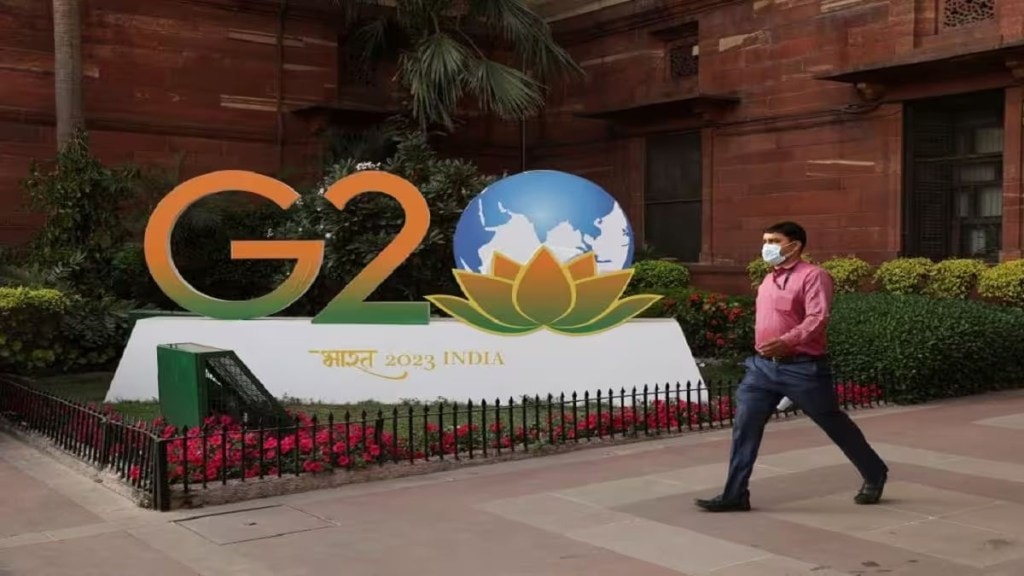By Siddharth Banerjee
The realm of higher education has undergone a significant transformation in recent years, primarily propelled by the surge in online learning. This shift, driven by technological advancements, has ushered in an era where traditional classroom education coexists with dynamic online platforms. India, like many other nations, has witnessed a significant increase in online enrolment, reflecting a global trend. Amidst these changes, the G20, the premier forum for global economic cooperation, could play a pivotal role in shaping the future of online higher education.
Online higher education, with its accessibility, flexibility, and potential for democratising learning, stands as a beacon of opportunity. It empowers learners, enhances institutional competitiveness, and contributes to economic growth by helping build a skilled workforce. The G20, with its global reach and commitment to innovation and collaboration, could hold the key to harnessing the transformative power of online education for the progress of nations and individuals worldwide.
India’s presidency of the G20 in 2023 presented an exceptional opportunity for the nation to showcase its higher education system on the global stage. A milestone was achieved during the G20 Education Ministers’ Meeting (EMM) held in Pune, Maharashtra, in June 2023, under the leadership of the Union Minister of Education. The meeting resulted in the endorsement of a comprehensive report and a compendium of programmes and policies.
The G20 Education Working Group has identified four key priority themes that underline their commitment to holistic global education advancement. These themes encompass ensuring foundational literacy and numeracy, leveraging digital technology, enhancing the relevance of education to the future workforce, and promoting cross-border collaboration between higher education and research and innovation. Collectively, these priorities offer a comprehensive strategy for education reform.
Additionally, the G20 Education Working Group’s vision, rooted in lifelong learning, emphasises inclusivity, quality, and equity in all educational policies. In alignment with this vision, the report introduces five pivotal keys to unlock the potential of inclusive, qualitative, and collaborative tech-enabled learning. These keys pave the way for a more accessible and impactful educational landscape on a global scale.
The G20 acknowledges the pivotal role of digital transformation in achieving the Sustainable Development Goals (SDGs). Notably, the G20 Sustainable Finance Roadmap, known for its voluntary and adaptable approach, has played a vital role in addressing the priorities of G20 member nations. In the context of promoting online higher education, the G20 can play a central role by pursuing several key strategies.
First, the G20 can encourage its member countries to invest in online education infrastructure and technology. Such encouragement can foster an environment conducive to technological advancement, thus expediting the growth of online education on a global scale.
Second, fostering collaboration among member nations is essential. Collaboration enables the sharing of best practices and the establishment of common standards for online education, ensuring that online courses and programs consistently maintain high quality and relevance.
Furthermore, the G20 can advocate for the recognition of online degrees and diplomas from member countries by others in the group. This recognition is instrumental in promoting mobility and facilitating access to education from institutions around the world.
Lastly, the G20 can actively support research and development in the field of online education. Promoting innovation through partnerships and funding initiatives can lead to continuous enhancements in the quality of online programmes.
In India, as per a report from KPMG, the online education market is expected to almost triple to a value of $5.7 billion by 2025 from $2 billion in 2020. These figures underscore the significance of the G20’s potential role in advancing online higher education, not only in India but on a global scale, to fulfil the objectives of sustainable development through digital transformation.
The burgeoning wave of online higher education offers the G20 an unparalleled opportunity to champion education as a pivotal catalyst for economic growth and development. As industries progressively acknowledge the significance of online education in elevating their workforce’s skill sets, and with the G20’s resolute dedication to the global advancement of education, the horizon of online higher education gleams with promise. This is not merely a reaction to shifting circumstances; it is a dynamic force propelling growth, fostering innovation, and accelerating global educational progress.
The author of this article is CEO, UNIVO Education. Views expressed are personal.

